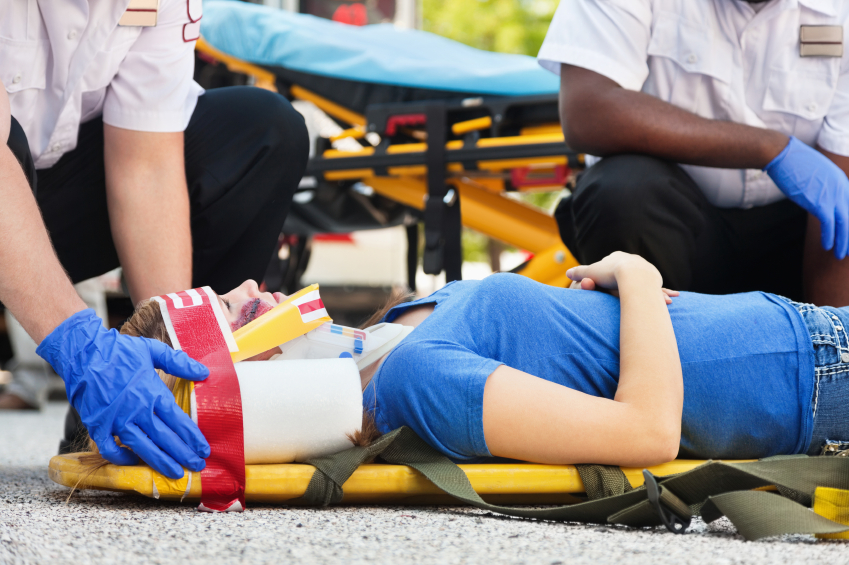Understanding Catastrophic Injuries
Catastrophic injuries are severe physical damages that can cause long-lasting disability and require extensive medical treatment. These injuries frequently result in significant damage to crucial organs, spinal cord injuries, and traumatic brain injuries, causing substantial disabilities. These injuries considerably change how a person lives, reducing their capacity to work, participate in leisure activities, and complete everyday tasks alone. Seeking guidance from catastrophic injury lawyers in Ocala can help you navigate legal challenges, provide necessary assistance, and facilitate just compensation. This particular stage is essential for protecting the financial interests of those impacted and their loved ones. The consequences are significant in a person’s life, so it is necessary to consult experts to manage the situation.
Immediate Steps to Take After an Injury
When a catastrophic injury occurs, immediate and appropriate action is essential. The first step is to ensure that medical assistance is on its way. Keeping the injured person stable and preventing further harm until professionals arrive is crucial. Following the guidance of emergency operators and medical personnel can make a significant difference in the outcome, ensuring the injured person receives the best possible care and minimizing the risk of further complications.
Moreover, documenting the scene and details of the incident can be invaluable for medical and legal purposes. This includes taking photographs, noting witnesses, and preserving any physical evidence. Such documentation may aid in medical assessments and subsequent legal proceedings to secure compensation and support for the injured individual.
Medical Treatments and Rehabilitation
Treatment for catastrophic injuries typically involves a combination of surgeries, medications, and long-term rehabilitation programs. Medical professionals often coordinate a multi-faceted approach to address the diverse needs arising from severe injuries. Rehabilitation programs may encompass a variety of therapies aimed at restoring as much functionality and independence as possible.
- Surgeries: Multiple surgeries may be required to repair damage, stabilize the patient, and facilitate healing. These could range from immediate emergency surgeries to ongoing procedures to improve function and quality of life.
- Medications: Pain management and other medications play a crucial role throughout the recovery process, helping to manage symptoms and prevent complications.
- Rehabilitation: Regular physical therapy, occupational therapy, and other specialized care sessions are integral to regaining mobility and performing everyday tasks efficiently.
Successful rehabilitation often leverages advanced technologies and personalized care plans. Individualized attention ensures that each patient’s unique needs are addressed, promoting more effective recovery and better outcomes.
Mental and Emotional Support
The mental and emotional toll of catastrophic injuries can be as devastating as the physical impact. Psychological well-being is integral to recovery, necessitating access to professional counseling, support groups, and mental health resources. Developing a solid support system can significantly alleviate mental strain.
According to a report, managing stress through therapy and support networks is crucial for long-term recovery. Therapy can help address issues such as depression, anxiety, and post-traumatic stress disorder (PTSD), which are common among those experiencing severe injuries.
Furthermore, family and friends’ support plays a vital role in mental health recovery. It’s essential to communicate openly about one’s needs and emotions. Doing so helps build a network of understanding and compassionate individuals who can offer both practical help and emotional encouragement.
Financial and Legal Considerations
Serious injuries come with significant financial challenges from medical expenses, decreased earnings, and ongoing care requirements. Careful financial planning is required to navigate these expenses. Getting legal guidance at an early stage is crucial for grasping your rights and the potential compensation options that may be accessible. In Ocala, residents should be mindful of different financial and legal factors, especially related to economic difficulties, elder law, and the availability of legal assistance. Financial reimbursement via insurance claims, personal injury lawsuits, and disability benefits can assist in covering increasing costs. Consulting with a legal professional guarantees that every possible option for compensation is thoroughly considered and optimized. This action helps reduce the financial burden and ensures enough funds for continuous medical treatment and everyday costs.
Adapting to a New Lifestyle
Adapting to life post-injury poses significant challenges, but it is possible to lead a fulfilling life with the right resources. Home modifications, such as installing ramps, stair lifts, and accessible bathroom fixtures, are often necessary. These changes enhance mobility and independence within the home environment.
Investing in adaptive equipment like wheelchairs, prosthetics, and other aids tailored to the individual’s specific needs can dramatically improve quality of life. Additionally, using daily living aids to assist with dressing, cooking, and other tasks can help maintain a sense of autonomy and reduce reliance on caregivers.
Seeking out occupational therapy is another effective way to learn new techniques for daily activities. Occupational therapists specialize in teaching methods to adapt to physical limitations, facilitating a smoother transition into a new way of living.
Staying Positive and Finding New Purpose
Staying positive through such a challenging time is crucial. Finding purpose and meaning in life post-injury can significantly enhance the quality of life. This often involves engaging in activities that bring joy and fulfillment, including advocacy work, volunteering, or discovering new hobbies and interests.
Advocacy offers a powerful way to channel experiences into positive action, helping to raise awareness and support for others in similar situations. Volunteering provides an opportunity to give back to the community, fostering a sense of purpose and connection. Exploring new hobbies and interests can also be incredibly rewarding. Whether pursuing creative outlets, developing new skills, or simply enjoying recreational activities, these endeavors contribute to a fulfilling and enriched life, helping redefine one’s identity beyond injury.
Stay here and visit ventstribune for more details.

